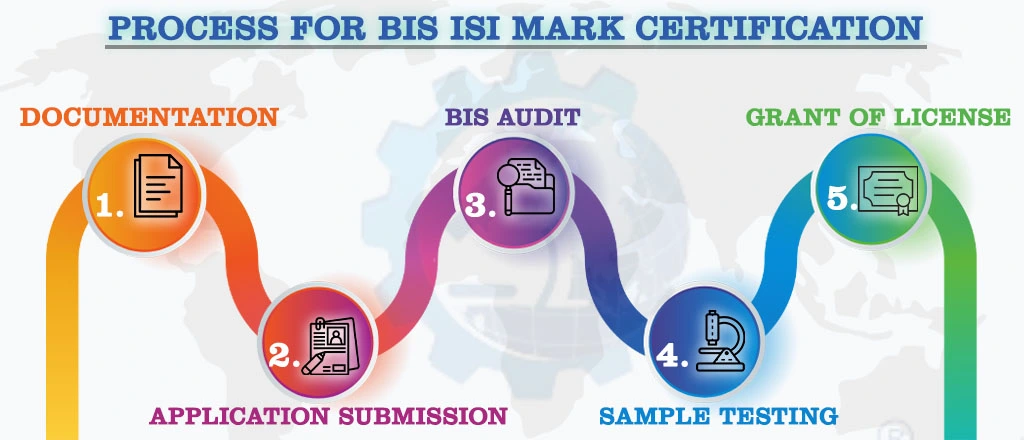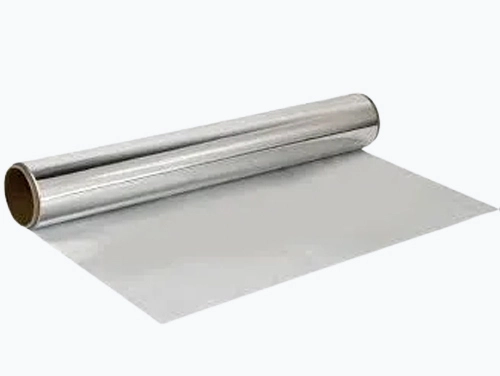BIS CERTIFICATION FOR ALUMINIUM & ALUMINIUM ALLOY BARE
IS 15392:2003
In this competitive scenario, it isn't easy to survive in the market without a standard quality and certified product. BIS license may also be required to sell products in the Indian market.
To get BIS certification and produce a
standard quality product, the manufacturer must ensure that their
product must follow the specified Indian standard.
Let's take a closer look at IS 15392:2003 for aluminium and aluminium alloy bare foil for food packaging.
Aluminium and Aluminium Alloy Bare Foil for Food Packaging are covered under IS 15392:2003. This standard specifies the requirements for the bare foil of annealed aluminium and the aluminium alloy used in food packaging.
Bare foil: A cold rolled product of rectangular cross-section with a thickness greater than 0.011 mm but less than 0.075 mm, available in either straight length or coil form.
This standard covers Aluminium and Aluminium Alloy Bare Foil for Food Packaging of the following varieties:-
- Preferred Nominal Thickness: 11,12,14,16,18,20,22,25,28,30,35,40,45,50,60,70 & 75 µm
- Surface Condition:
- Dry Annealed
- Slick Annealed
The material used for aluminium and aluminium alloy foil must meet the chemical composition of IS 737 Grades 19000, 19500, 19600, 31000, and 40800. IS 10259 specifies the general requirements for supplying aluminium and aluminium alloy foil. The material must be provided in fully annealed 'O' temper, and the material may be supplied in any other tempers if the purchaser agrees. The foil roll shall be supplied in the pre-lubricated condition unless otherwise specified by the purchaser.
All rolls must be individually inspected for manufacturing flaws, surface flaws, and dimensional tolerances.
TESTS
The following test shall be carried out for bare foil.
- Material
- Pinhole count
- Lubricants
- Dimensions
- Tensile Properties
- Freedom from defects
- Surface Conditions
Each package of bare aluminium and aluminium alloy foil may be suitably marked for identification with the Manufacturer's name, grade, material condition, batch number, and date of manufacture. The Standard Mark (ISI Mark) may also be marked to the foil package. The Manufacturer must obtain a BIS license from the Bureau of Indian Standards to use a standard mark (ISI Mark). The Bureau grants a license based on a successful assessment of manufacturing infrastructure, production process, and quality control and testing capabilities during a visit to its manufacturing premises.

NOTE:
For Detailed Information about the Procedure for BIS ISI Certification
Visit :
ISI Mark Certification for Domestic ManufacturersISI Mark Certification for Foreign Manufacturers
Conclusion:
If a product falls under the scope of the BIS Conformity Assessment Scheme, All the manufacturers, importers, and foreign entities must obtain BIS ISI Certification. The Bureau may cancel the License if the product fails to meet certification requirements.
Aleph INDIA has been serving the industry as a single-window operator for all product regulatory compliance. We can assist importers or manufacturers in meeting all criteria for importing or selling a product in the Indian market.
International Audits & Participation
Testimonials
BIS REGISTRATION FOR ELECTRONIC & IT PRODUCT
In the era of globalization, world trade is growing rapidly and henceforth, Manufacturing and Import/Export businesses are also growing drastically...View More
BIS CERTIFICATE FOR FOREIGN MANUFACTURER
The Economy of India-the fastest developing economy on the globe with the capabilities that help it matches up with the biggest international...View More
PRODUCT CERTIFICATION SCHEME (ISI MARK) FOR DOMESTIC MANUFACTURERS
Anything a person buys from food to cars, clothes to electronics, branded to unnamed products there is always a question that wanders in one’s...View More
WIRELESS PLANNING AND COORDINATION (WPC)
WPC: Wireless means communication done from one point to another point without the wires and cables. Electromagnetic waves carry the ...View More
BUREAU OF ENERGY EFFICIENCY (BEE) CERTIFICATE
BEE CERTIFICATE: Energy is the future, and its conservation is the way of the bright future. Everyone claims the environment is important...View More
E-WASTE MANAGEMENT
E-waste is one of the world's fastest-growing trash streams. We currently manufacture almost 50 million tones of it each year...View More
Request a call back.
Would you like to speak to one of our Senior Technical advisers over the phone? Just submit your details and we’ll be in touch shortly. You can also email us if you would prefer.
BIS REGISTRATION FOR ELECTRONIC & IT PRODUCT
In the era of globalization, world trade is growing rapidly and henceforth, Manufacturing and Import/Export businesses are also growing drastically...View More
BIS CERTIFICATE FOR FOREIGN MANUFACTURER
The Economy of India-the fastest developing economy on the globe with the capabilities that help it matches up with the biggest international...View More
PRODUCT CERTIFICATION SCHEME (ISI MARK) FOR DOMESTIC MANUFACTURERS
Anything a person buys from food to cars, clothes to electronics, branded to unnamed products there is always a question that wanders in one’s...View More
WIRELESS PLANNING AND COORDINATION (WPC)
WPC: Wireless means communication done from one point to another point without the wires and cables. Electromagnetic waves carry the ...View More
BUREAU OF ENERGY EFFICIENCY (BEE) CERTIFICATE
BEE CERTIFICATE: Energy is the future, and its conservation is the way of the bright future. Everyone claims the environment is important...View More
E-WASTE MANAGEMENT
E-waste is one of the world's fastest-growing trash streams. We currently manufacture almost 50 million tones of it each year...View More
View All Services
Request a call back.
Would you like to speak to one of our Senior Technical advisers over the phone? Just submit your details and we’ll be in touch shortly. You can also email us if you would prefer.






























